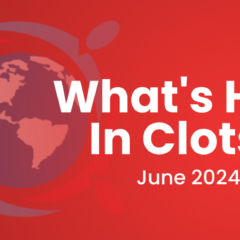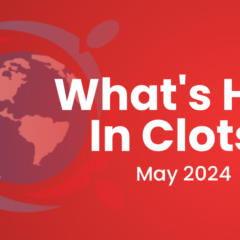Last updated on
Clot Chronicles: Fertility and VTE
Hi, I’m Dr. Greg Piazza and welcome to Clot Chronicles. I’m one of the faculty at the Brigham and Women’s Hospital Division of Cardiovascular Medicine and the Education Chair for the North American Thrombosis Forum. Today, we’re going to talk a little bit about the relationship between blood clotting and fertility.
Most of us know that genetic factors can impact fertility, as well as gynecologic tract abnormalities. But very few actually know that blood clotting—and a tendency to make blood clots where they shouldn’t be—can actually impact fertility and lead to difficulty conceiving and recurrent pregnancy loss. As a cardiologist who specializes in blood clotting, this is actually an important part of my clinical practice and my research.
So, when the fertilized egg implants into the uterus, it gets its blood supply from small blood vessels. And eventually, as it develops from embryo to fetus, it develops an umbilical cord and a placenta. Blood clots in any of the vascular structures can starve the growing baby of the nutrients that it needs to grow and can lead to either difficulty conceiving if very early on or recurrent pregnancy losses.
And the interesting thing is there’s been quite a bit of research in this area, especially in Europe, and there are a number of inherited and acquired hypercoagulable states or tendencies towards thrombosis that may lead to infertility that are fairly common and that can be treated with a low dose of a preventive blood thinner. So, this is a major area of focus for us, at Brigham and Women’s Hospital, in cardiovascular medicine, and a very, very progressive area of research worldwide.
I hope you enjoyed that little insight into fertility and its relationship to blood clotting. Thanks for joining us on Clot Chronicles.



